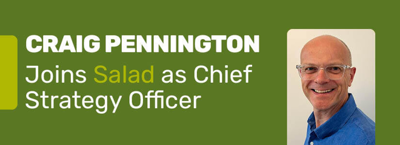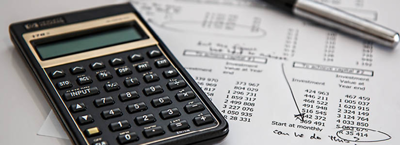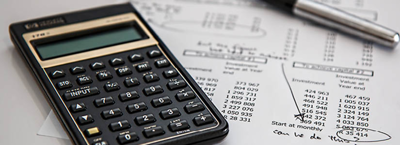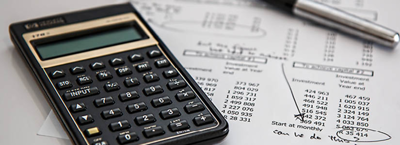
Anyone who has dreaded seeing a brown envelope on the doorstep will know that being in debt can have a dramatic effect on your sense of wellbeing. These days, with companies chasing repayments via email, text messages and phone calls, it can feel like there’s simply no escape.
This article will help you find ways to take control of your debt so you can relax and enjoy life again.
How can being in debt affect your mental health?
Debt and poor mental health go hand-in-hand and it’s hard to know which comes first. According to the Royal College of Psychiatrists, one in four adults will have a mental health problem at some point in their life, but one in two adults with debts suffer from a mental health issue.
Getting into debt can lead to feelings of stress and anxiety, trigger angry outbursts and contribute to depression. Major life changes such as bereavement, job loss and relationship breakdowns also frequently contribute to debt problems.
Suffering from poor mental health can trigger debt by leading you into reckless spending, ignoring bills, failing to claim all the benefits you’re entitled to or losing your job. It can also mean that you make poor decisions, such as taking out loans at extortionate rates to pay off existing debts or spending up to your credit card limit.
The good news is that by taking steps to manage your debt problems, you’ll soon be able to lighten the load and enjoy a more positive future.
How to get support with debt problems
Facing up to debt problems can be difficult. Even when debt isn’t our fault, we can still feel guilt, shame or embarrassment about the situation we’re in, especially if we can’t see our way out of it. Unfortunately, putting off asking for help will only make matters worse. It’s far better to ask for support and advice when you realise there’s a problem as this can stop your debts from escalating and becoming overwhelming.
Some people choose to speak to family, friends or colleagues who can give support. Others prefer to speak to an independent adviser who has expert knowledge in tackling debt. The Money Advice Service has a list of free and confidential advice services on its website, including StepChange Debt Charity, Citizens Advice and the Debt Advice Foundation. If you have internet access, you can use online advice tools, such as StepChange which has already been used by 1.7 million people. Alternatively, you can seek support over the phone or face-to-face.
Steps to take to manage your debt
The first key step is to identify how much money you have coming in, where it goes and how much you owe. Trying to manage your finances without understanding your income, expenditure and commitments is an impossible task. There are a number of budgeting apps to help you get insight into your spending or you can use a simple spreadsheet. Once you know exactly where you stand financially, you’ll have the information you need to start putting things right.
Once you’ve analysed your income and outgoings, you can start minimising your expenditure. This will help stop you racking up more debt and hopefully free up some money to start making repayments.
Avoid unnecessary spending
A quick win is to eliminate any unnecessary spends, such as unused gym memberships or other unnecessary subscriptions. Although it’s painful to do this – no-one wants to admit that they’ve been throwing good money away – it’s a worthwhile exercise and one that can be done quickly.
You can also use the Internet to shop around for better deals on utilities, such as gas, electricity, TV, broadband and mobiles. Comparison sites such as Comparethemarket allow you to quickly locate great deals. You can also use cashback sites like Quidco and Topcashback, voucher-finding apps like Honey or discount-sharing sites like Hotukdeals. If you’re an NHS employee, check out our blog on NHS discounts to save some extra cash which can be found in our news section.
The Moneysavingexpert site, run by Martin Lewis, offers both financial information, the latest deals and a user forum, including a popular ‘Debt-free Wannabe’ board which has had over 3.8 million posts to date. This includes lots of helpful advice and tips from others who are successfully reducing their debts.
Cook for yourself
One of our biggest expenses, after rent or the mortgage, is groceries. There are lots of things you can do to reduce food costs, including switching supermarkets, downgrading the brand you buy and more carefully planning your meals to reduce food waste. Writing a shopping list before you enter a supermarket or doing your shopping online can help reduce the temptation to add unnecessary items to your basket.
Cooking from scratch is a healthy way to save a lot of money compared to buying convenience meals or takeaways. There are many sites dedicated to budget cookery, including Jack Monroe’s website.
Jack’s frugal cookery skills, developed whilst on benefits, enable her to create tasty homemade dishes that often cost less than 50 pence per portion. Eating vegetarian meals, buying discounted ingredients such as mince for your freezer and using frozen vegetables can also help minimise your food spend. Don’t forget that the NHS card, which you can read about in another or our articles, allows you to earn cashback in some supermarkets too.
You can also look around your house to sell items that you no longer use, or which you or your kids have grown out of. Old toys, clothes and consoles are all popular. There are lots of simple ways to sell items online for free or at a low cost, including Schpock, Facebook Marketplace and Ebay.
Having put the brakes on your debt, you then need to prioritise your repayments. It makes sense to repay the credit card which has the highest interest rate first. You can also look at shifting some of the balance to a card with a lesser rate, so the debt costs you less in the long run. At this point, you may like to seek professional advice from a debt advice service as they can help you both prioritise your debts and communicate with those you owe money to. This may buy you extra valuable time and give you peace of mind.
How can debt be written off?
An Individual Voluntary Arrangement (IVA) is an agreement which allows you to make realistic payments over a set period, normally five or six years. At the end of your IVA, any unsecured debt left is written off. IVAs are available in England, Wales and Northern Ireland. If you own your own home, you’ll normally be able to keep it as long as you continue to pay your mortgage and any secured loans. However, if there’s equity in your home, you’ll need to try to re-mortgage which may result in a higher interest rate.
Bankruptcy can write off your unsecured debts, but you can lose assets including your home and car. Your bankruptcy will be recorded on a public register and affect your credit file for six years.
A Debt Relief Order (DRO) is a low-cost alternative to bankruptcy for residents of England, Wales or Northern Ireland who owe less than £20,000 and don’t own their own home. If you successfully apply for a DRO, you won’t pay anything towards your debts for 12 months and then they will be written off if your financial situation hasn’t improved.
Sequestration is a debt solution that’s available only in Scotland. It’s a form of insolvency which allows you to become debt-free in a short amount of time. If you have assets, such as a house or car, they may be sold to release funds, so this isn’t a suitable option if your assets are worth more than your debts.
A debt advice service will be able to advise you if any of these options are suitable. Alternatively, they may be able to help you set up a Debt Management Plan (DMP) which will enable you to make reduced monthly payments to your creditors.
If you ever need to take loans out again, choose a safer alternative like Salad Money that provides fair and affordable lending for NHS employees.



